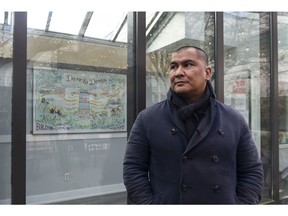
[ad_1]
Opinion: Treatment at home is crucial for those facing barriers, such as stigma, to accessing traditional treatment or simply because there is often not a detox bed available

Article content
B.C. is facing an unprecedented mental health and substance use crisis. The human cost has been devastating, with lives lost, families shattered and communities struggling to cope. Between April 2023 and March 2024, more than 4,600 people received treatment and support through publicly funded substance-use beds across all of B.C.’s health authorities, an increase of more than 1,000 from the previous year. Amidst this crisis, programs such as the Home Based Withdrawal Management and Detox Program, offered by B.C. nonprofit Options Community Services (OCS) have emerged.
Advertisement 2
Article content
Article content
Recommended Videos
Article content
This vital program provides critical support to those detoxing from substances in the comfort of their own homes, offering a culturally sensitive approach with services in English, Punjabi and Hindi. Recognizing that addiction recovery is not a one-size-fits-all process and that, for many, the traditional model of in-patient detox can be intimidating, disruptive, and culturally inappropriate, this home detox program offers a more flexible and accessible alternative.
Providing medical, emotional and social support within familiar surroundings, this approach is crucial for those facing barriers to accessing traditional treatment. Barriers include individuals who fear stigma and discrimination within their community and culture, those who cannot take time away from work or their family, clients who require culturally specific care, and the simple fact that there is often not a detox bed available when someone reaches out for help.
Article content
Advertisement 3
Article content
Based in Surrey, OCS started the program after noticing a disturbing trend related to South Asian men where the number of drug toxicity deaths increased by 255 per cent between 2015 and 2018. Through consultation with members of the community, the stigma around substance use was found to be prevalent in the South Asian community, particularly around the use of alcohol.
Simon Fraser University has been studying the program and its effectiveness: 620 clients have contacted OCS for support, via the home detox program, over the past 20 months. Data from the end of 2023 showed that 178 people reached out to the program that year, with 73 calls coming from Punjabi-speaking people. Key findings from the research indicated the changes in recovery capital reflected the superiority of home-based care as opposed to in-patient or clinic settings for clients. Additionally, the involvement of caregivers was noted as a key feature as it provided a shared sense of accomplishment and stronger relationships were formed with the client and the caregiver.
Advertisement 4
Article content
The OCS home detox program acknowledges the importance of offering supports for not only for individuals struggling with substance use, but also for their close friends and families, recognizing the widespread impact of substance use disorder. This is crucial for long-term recovery.
In addition to health benefits, there are cost-saving elements that cannot be ignored. The cost of the home detox program is approximately $305 daily for one person, free to the client, with an average of 10 days of detox. B.C.’s Fraser Region in-patient detox costs the health-care system approximately $1,100 daily/per patient.
Funded by Health Canada, this program’s two-year funding expires on March 31. Fraser Health Authority is unable to allocate any resources or funding to continue this initiative.
Advertisement 5
Article content
Without adequate funding, the OCS Home Based Addictions Support and Detox Program may be forced to cease operation, leaving individuals without the support they need to overcome substance use challenges. This would not only be a tragic loss for those individuals and their families but also a significant setback for B.C.’s efforts to address the ongoing addiction crisis.
It is imperative that we explore alternative funding sources and advocate for continued support for this vital program. Options include continued government funding, private sector partnerships, and community fundraising.
Ensuring the continuation of this unique, vital program is imperative as we strive to meet the growing needs of our diverse and rapidly expanding community.
Neil Arao is executive-director for homelessness, housing and mental health services with Options Community Services.
Article content
